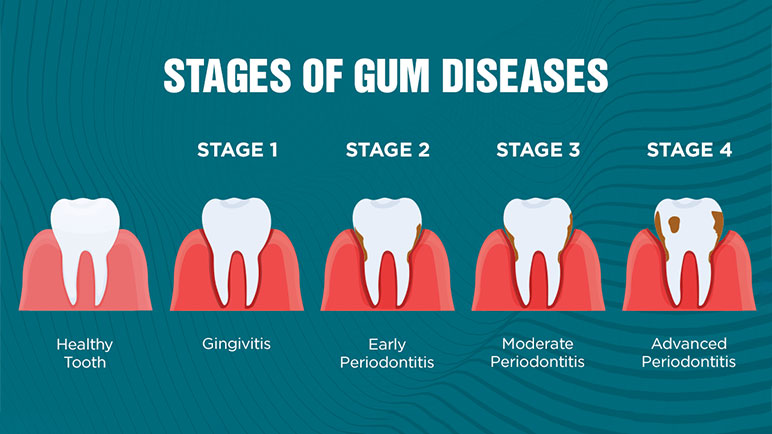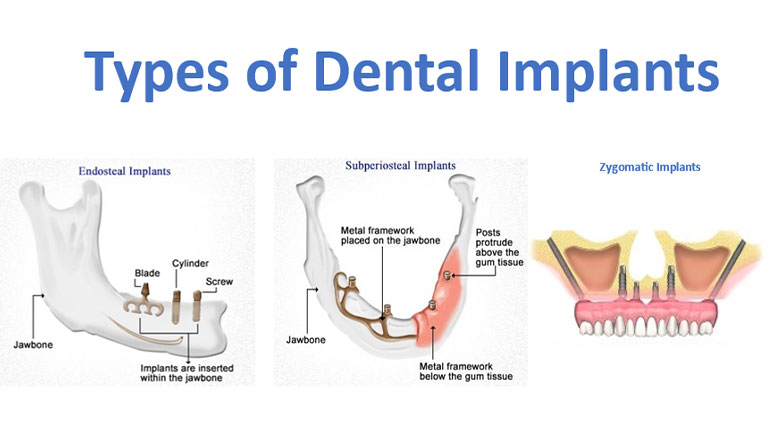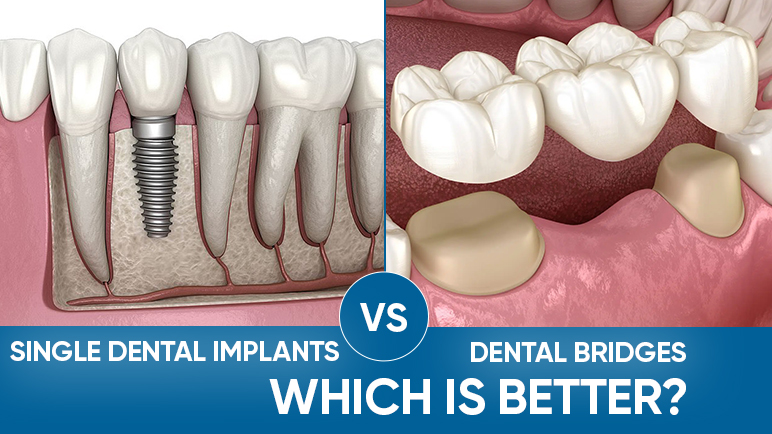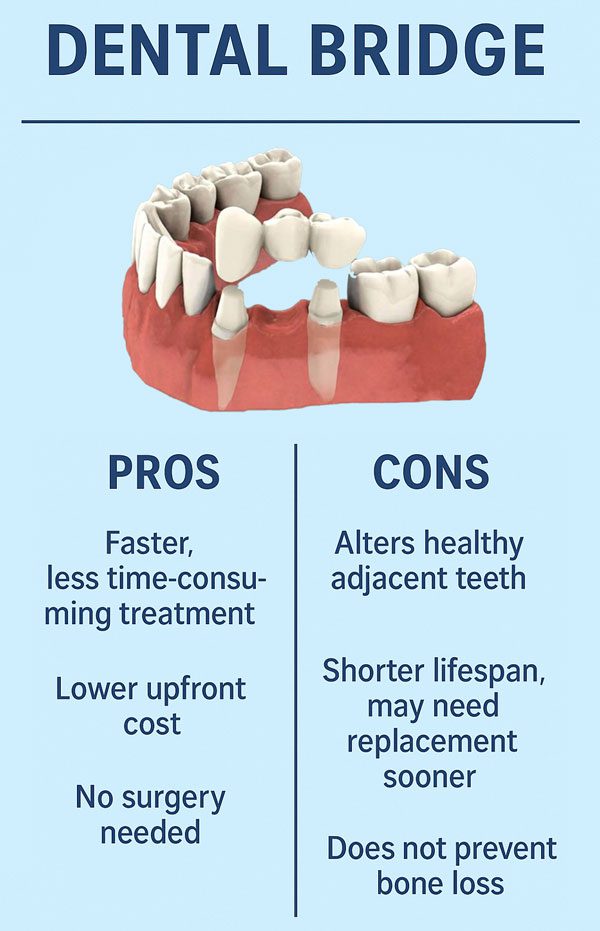Can I Getting New Teeth? Exploring Options for a Healthy, Confident Smile? Losing teeth can be a distressing experience that impacts not only your appearance but also your ability to eat, speak, and maintain overall oral health. Fortunately, modern dentistry offers a wide array of solutions to restore your smile and improve your quality of life. This comprehensive guide explores the possibilities of getting new teeth, covering various options, considerations, and frequently asked questions to help you make informed decisions about your dental health.
Understanding the need for getting new teeth
The loss of teeth, whether due to decay, injury, or gum disease, can have far-reaching consequences on both your oral health and overall well-being. Understanding the reasons behind tooth loss and the benefits of replacement is crucial in prioritizing the restoration of your smile.
Common reasons for tooth loss
Tooth loss is a common dental issue that can stem from various factors. Understanding these causes can help in prevention and early intervention:
Dental caries, commonly known as cavities, are one of the primary culprits behind tooth loss. When left untreated, these small areas of decay can progress, eventually leading to severe damage that necessitates extraction. Regular dental check-ups and proper oral hygiene can help catch and treat cavities early, preventing tooth loss.
Gum disease, or periodontitis, is another major cause of tooth loss. This progressive condition begins with inflammation of the gums (gingivitis) and can eventually lead to the destruction of supporting tissues and bone. As the disease advances, teeth may become loose and eventually fall out or require extraction. Maintaining good oral hygiene and seeking prompt treatment for gum issues are crucial in preventing this outcome.

Trauma or injury to the mouth can also result in tooth loss. Accidents, sports injuries, or falls can cause teeth to be knocked out, fractured, or so severely damaged that extraction becomes necessary. Wearing protective gear during high-risk activities and seeking immediate dental care after an injury can help mitigate the risk of tooth loss from trauma.
Certain genetic factors can predispose individuals to tooth loss. Some people may inherit conditions that lead to weaker tooth enamel or a higher susceptibility to gum disease, increasing their risk of losing teeth over time. While genetic predisposition can’t be changed, awareness of these factors can help individuals take proactive measures to protect their oral health.
Aging is a natural process that can contribute to tooth loss. As we grow older, our teeth become more susceptible to wear, decay, and the cumulative effects of years of use. This makes proper dental care even more crucial as we age to maintain our natural teeth for as long as possible.
Benefits of replacing missing teeth
The decision to replace missing teeth can have a profound impact on both your physical and mental health. Here are some of the key benefits:
Improved oral health is perhaps the most significant advantage of replacing missing teeth. When gaps are left in your smile, the remaining teeth can shift and become misaligned. This misalignment can lead to further tooth decay and gum disease, as it becomes more difficult to clean between crowded or crooked teeth. By filling these gaps, you maintain proper spacing and alignment, making it easier to keep your mouth clean and healthy.
Enhanced eating and speaking abilities are another crucial benefit. Missing teeth can significantly impact your ability to chew food properly and articulate words clearly. This can lead to dietary restrictions and social discomfort. Getting new teeth allow you to enjoy a wider variety of foods and communicate with confidence, improving both your nutrition and social interactions.
Improved facial appearance is a benefit that shouldn’t be underestimated. Missing teeth can cause the face to appear sunken or prematurely aged, as the underlying bone structure begins to deteriorate without the stimulation provided by tooth roots. Replacing missing teeth restores facial structure, helping you maintain a more youthful appearance and a fuller, more aesthetically pleasing smile.
Boosted self-confidence is a significant psychological benefit of replacing missing teeth. Many people with gaps in their smile feel self-conscious about their appearance, which can lead to social anxiety and decreased quality of life. Achieving a brighter, fuller smile can significantly boost your self-image, leading to improved social interactions and overall well-being.
Types of dental solutions available
Modern dentistry offers several solutions to replace missing teeth, each with its own set of advantages and considerations:
Dental implants are often considered the gold standard for tooth replacement. These artificial tooth roots are surgically placed into the jawbone and topped with a custom-made crown. Implants offer a permanent solution that looks, feels, and functions like natural teeth.
Dentures are removable appliances that can replace multiple missing teeth or even a full arch. They come in full and partial varieties, offering a cost-effective solution for extensive tooth loss.
Bridges are another option for replacing one or more missing teeth. They consist of artificial teeth anchored to adjacent natural teeth or implants, literally “bridging” the gap in your smile.

Each of these solutions has its own pros and cons, and the best choice depends on factors such as the number of missing teeth, overall oral health, budget, and personal preferences. A thorough consultation with a dental professional is essential to determine the most suitable option for your unique situation.
Exploring different options for new teeth
When it comes to getting new teeth, it’s crucial to understand the various options available. Each solution has its unique benefits and considerations, and the right choice depends on individual circumstances, preferences, and budget. Let’s delve deeper into the main types of tooth replacement options to help you make an informed decision.
Dental Implants: Pros and Cons
Dental implants have revolutionized the field of tooth replacement, offering a solution that closely mimics natural teeth in both form and function. This innovative approach involves surgically placing a titanium post into the jawbone, which acts as an artificial tooth root. Once the implant has integrated with the bone, a custom-made crown is attached, completing the restoration.
The popularity of dental implants stems from their numerous advantages:
Durability and longevity are key benefits of dental implants. With proper care, implants can last a lifetime, making them a cost-effective solution in the long run. Unlike other tooth replacement options that may need to be replaced every few years, implants offer a permanent solution to tooth loss.
Natural feel and function are perhaps the most appreciated aspects of dental implants. Because the implant is anchored directly in the jawbone, it provides a stable foundation for the artificial tooth. This stability allows implants to function just like natural teeth, enabling you to eat, speak, and smile with confidence. Many patients report that they forget they even have an implant, as it feels so much like their natural teeth.
Improved bone health is another significant advantage of dental implants. When a tooth is lost, the underlying jawbone begins to deteriorate due to lack of stimulation. Dental implants are the only tooth replacement option that stimulates the jawbone, preventing bone loss and preserving facial structure. This not only maintains your appearance but also helps prevent future dental problems.
However, it’s important to consider some potential drawbacks:
Cost is often the primary concern for many patients considering dental implants. The initial investment for implants is typically higher than other tooth replacement options. However, when considering the longevity and quality of life improvements, many find the cost justified.
The surgical procedure required for implant placement can be a deterrent for some. While the surgery is usually performed under local anesthesia and is well-tolerated by most patients, it does involve a healing period. Some individuals may not be comfortable with the idea of oral surgery or may have medical conditions that complicate the procedure.
Not everyone is a suitable candidate for dental implants. Factors such as insufficient bone density, certain medical conditions, or lifestyle habits like smoking can affect the success of implant surgery. A thorough evaluation by a dental professional is necessary to determine if implants are a viable option for you.

Dentures: Full vs. Partial
Dentures have long been a popular solution for replacing missing teeth, offering a non-invasive and cost-effective option. They come in two main types: full dentures and partial dentures, each designed to address different levels of tooth loss.
Full dentures are used when all teeth in either the upper or lower jaw need to be replaced. They consist of a flesh-colored acrylic base that fits over your gums, supporting a full set of artificial teeth. Modern full dentures are custom-made to fit comfortably and look natural, restoring your smile and facial structure.
The benefits of full dentures include:
Improved appearance and confidence, as they restore a full smile and support facial muscles, reducing the sunken look that can occur with extensive tooth loss.
Ability to eat a wider variety of foods compared to having no teeth, although there may be some limitations compared to natural teeth or implants.
Relatively affordable compared to other full-mouth restoration options, making them accessible to a broader range of patients.
Partial dentures, on the other hand, are used when some natural teeth remain. They consist of replacement teeth attached to a plastic base, sometimes with a metal framework for added strength. Partial dentures clip onto the remaining natural teeth, filling in the gaps in your smile.
Advantages of partial dentures include:
Preservation of remaining natural teeth by preventing them from shifting position.
Flexibility to add more teeth to the denture if additional natural teeth are lost in the future.
A more affordable option compared to multiple individual tooth replacements.
However, both full and partial dentures come with some considerations:
- Adjustment period: It takes time to get used to wearing dentures. Initially, they may feel bulky or loose, and it may take some practice to eat and speak comfortably.
- Maintenance requirements: Dentures need to be cleaned daily and should be removed at night to allow the gum tissues to rest. They may also need periodic adjustments or replacements as the shape of your mouth changes over time.
- Potential for slippage: Even well-fitted dentures can sometimes slip during eating or speaking, which can be embarrassing and uncomfortable.
- Impact on taste: Full upper dentures cover the palate, which can affect your sense of taste and the temperature sensation of foods.
Bridges – When are getting new teeth appropriate?
Dental bridges offer another solution for replacing missing teeth, particularly when one or a few teeth in a row are missing. As the name suggests, bridges literally bridge the gap created by missing teeth.
A traditional bridge consists of one or more artificial teeth (called pontics) held in place by dental crowns cemented onto the adjacent natural teeth or implants on either side of the gap. These anchoring teeth are called abutments.

Bridges can be an excellent option in several scenarios:
When replacing one to three consecutive missing teeth, bridges offer a fixed solution that doesn’t require removal for cleaning like dentures.
For individuals who are not candidates for dental implants due to insufficient bone density or medical conditions, bridges provide a non-surgical alternative.
In cases where a quick solution is needed, bridges can often be completed in just two or three dental visits, unlike implants which require a longer treatment timeline.
The advantages of dental bridges include:
Restored ability to chew and speak properly, as the bridge fills the gap and prevents other teeth from shifting.
Maintenance of facial shape by providing support to the lips and cheeks, preventing the sunken appearance that can occur with missing teeth.
A fixed solution that doesn’t require removal for cleaning, unlike partial dentures.
However, there are also some considerations to keep in mind:
- Preparation of adjacent teeth: Traditional bridges require the healthy teeth on either side of the gap to be prepared (filed down) to accommodate the crowns. This irreversible process can weaken these teeth and make them more susceptible to decay.
- Lifespan: While bridges can last many years with proper care, they typically don’t last as long as dental implants and may need to be replaced.
- Cleaning challenges: Special care must be taken to clean under the pontic (the artificial tooth) to prevent decay and gum disease in the supporting teeth.
- Potential for failure: If one of the supporting teeth develops problems, the entire bridge may fail and need replacement.
In conclusion, each tooth replacement option – be it dental implants, dentures, or bridges – has its own set of advantages and considerations. The choice depends on factors such as the number and location of missing teeth, overall oral health, budget, and personal preferences. Consulting with a dental professional is crucial in determining the most suitable option for your unique situation, ensuring you can smile, eat, and speak with confidence once again.
Importance of consultation with a dental professional
The first and most crucial step in your journey to getting new teeth is consulting with a qualified dental professional. This initial consultation serves several important purposes:
- Comprehensive oral health assessment: Your dentist will thoroughly examine your mouth, including your remaining teeth, gums, and jawbone. This assessment helps identify any underlying issues that need to be addressed before proceeding with tooth replacement.
- X-rays and imaging: Advanced imaging techniques, such as panoramic X-rays or 3D CT scans, may be used to evaluate your bone structure and density. This information is crucial, especially if dental implants are being considered.
- Discussion of treatment options: Based on your oral health, personal preferences, and budget, your dentist will present and explain various tooth replacement options suitable for your situation. They will discuss the pros and cons of each option, helping you make an informed decision.
- Treatment planning: Once you’ve decided on a tooth replacement method, your dentist will create a detailed treatment plan. This plan outlines the steps involved, the estimated timeline, and the cost of the procedure.
- Addressing concerns and questions: The consultation is your opportunity to ask questions and express any concerns you may have about the procedure. A good dental professional will take the time to address all your queries, ensuring you feel comfortable and confident about moving forward.
- Assessment of medical history: Your overall health can impact the success of dental procedures. During the consultation, your dentist will review your medical history to identify any conditions or medications that could affect your treatment.
Remember, this consultation is not just about the dentist gathering information. It’s also your chance to assess the dentist’s expertise, communication style, and whether you feel comfortable with them. Don’t hesitate to seek a second opinion if you’re unsure or want to explore other perspectives before making a decision.
Aftercare and maintenance for long-lasting results
The success and longevity of getting new teeth largely depend on proper aftercare and ongoing maintenance. Here’s what you need to know:
Immediate post-procedure care:
- Follow all post-operative instructions provided by your dentist. These may include guidelines on eating, drinking, and oral hygiene in the days following the procedure.
- Take any prescribed medications, such as antibiotics or pain relievers, as directed.
- Apply ice packs to reduce swelling, if recommended.
- Rest and avoid strenuous activities for the time period specified by your dentist.
Long-term care and maintenance:
- Maintain excellent oral hygiene: Brush at least twice daily and floss once a day. For dentures, follow the specific cleaning instructions provided.
- Use recommended products: Your dentist may suggest special toothpaste, mouthwash, or cleaning tools designed for your new teeth.
- Attend regular check-ups: Schedule and keep all follow-up appointments. These allow your dentist to monitor your healing and the integration of your new teeth.
- Be mindful of what you eat: Especially in the initial healing period, avoid hard, sticky, or excessively hot or cold foods that could damage your new teeth or irritate healing tissues.
- Wear protective gear: If you play sports, wear a mouthguard to protect your new teeth from potential injury.
- Avoid harmful habits: Don’t use your teeth as tools (e.g., to open packages), and avoid habits like nail-biting or chewing on non-food items.
- Stay hydrated: Drinking plenty of water helps maintain oral health by stimulating saliva production, which naturally cleanses the mouth.
- Be aware of changes: If you notice any pain, looseness, or changes in how your new teeth feel or function, contact your dentist promptly.
- Consider lifestyle changes: If you smoke, consider quitting entirely, as this can significantly improve the healing process and overall oral health. Maintaining a balanced diet is also crucial to ensure your body receives the necessary nutrients needed for recovery and longevity of your new teeth.
Aftercare isn’t merely about following post-operative guidelines; it’s about forming habits that contribute to long-lasting results. This means committing to a regular dental hygiene routine and being proactive about scheduling appointments with your dentist for professional cleanings. The better care you take of your new teeth, the longer they will serve you effectively.
Conclusion
The journey of getting new teeth is pivotal for both your oral health and overall well-being. Understanding the necessity of replacing missing teeth, selecting the best options suited to your condition, and preparing properly for the procedures can greatly enhance your experience. Knowledge empowers you to avoid common mistakes that could jeopardize your investment in your dental health. Last but not least, consistent aftercare is vital for ensuring the longevity of your new teeth and preserving your smile for years to come. A thorough consultation with your dental professional sets the stage for success, paving the way for informed decisions and a lifetime of confidence in your dental restoration choices.

 Google Reviews
Google Reviews Call
Call